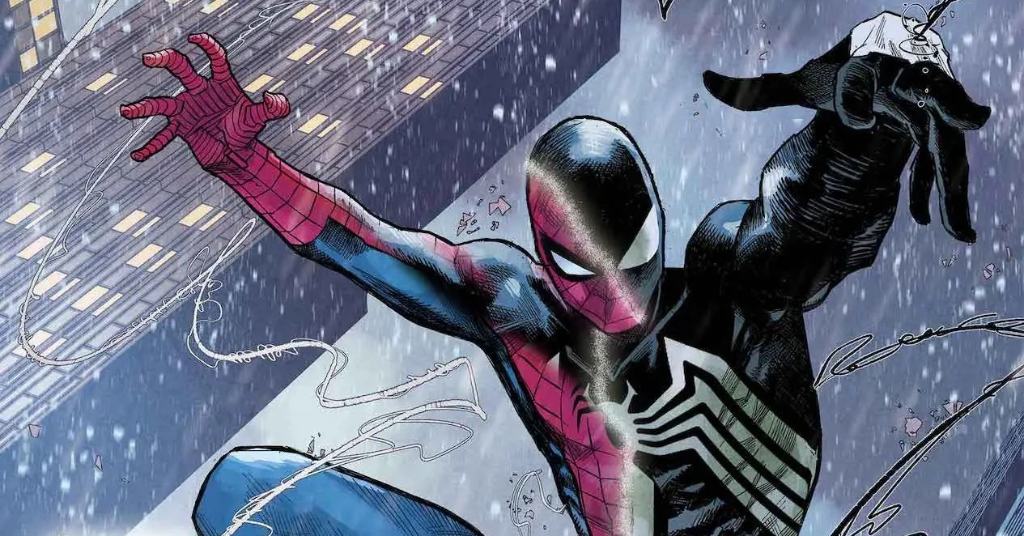In 2000, it felt like the only way to reinvigorate a seminal character like Spider-Man was to return to his roots, stripping away the complex web (not sorry for the pun) of continuity and spin, a timely, yet timeless tale of superheroics and adolescence. Brian Michael Bendis and Mark Bagley did just that with Ultimate Spider-Man, blending a contemporary approach to story with the timeless pencils the artist has become known for, leading to a seminal title that spawned a universe that would go on to inspire the pop culture juggernaut of the last decade and some change.
To replicate the success of the experiment seemed impossible, as similar approaches to restarting at the ground level proved difficult for lines like DC’s Earth One. In an era of accessibility, thanks to the endless scroll of Marvel Unlimited, DC Universe, and the glut of Fandom Wikis, continuity is no longer a perilous wall that makes comics inescapable. Marvel has sold itself on the dense, interconnected storytelling of everything matters, and while the movie business has been a mixed result in the last few years, there has to be some merit as nostalgia books keep getting greenlit left and right.
That alteration in the fabric of comic book reality, paired with the odd spot Marvel has carved for itself as a publisher makes clear there was no clear answer on how to approach a new iteration of the Ultimate line. In a post-Secret Wars world, where the publisher could have cleaned up continuity with their crisis-like ending but backed out at the last moment, reboots and fear of continuity seem like the road less traveled. Bigger ideologies of the organic and fluidity of continuity have been explored in smarter books like Al Ewing’s Ultimates and The Defenders.
With that foundation in mind, a few months previously, Jonathan Hickman alongside fellow creator Bryan Hitch (an established figure in the history of the Ultimate Universe) relaunched the modernized world outside your window. In the 2000s, the publishing imprint updated not only Spider-Man’s original, but the entire Marvel universe, putting a spotlight on the Fantastic Four, the X-Men, and a modern, military-industrial-backed rendition of the Avengers called the Ultimates. The effect of these new interpretations of iconic characters would be lasting, as the MCU can attest.
With that, Hickman and Hitch’s reinvention would need to be bombastic and unique to be a success. Would they try to recapture the alchemy of timeliness and timelessness by updating the iconography of the shared universe? Or would it be a radical departure from what came before, crafting a new story from a blank canvas? Either was possible at this junction of Hickman’s career, both paths evident after his respective runs on Avengers and then on X-Men. After the lackluster story of Ultimate Invasion, and the more interesting Ultimate Universe one-shot, it’s clear the solution lies in the middle, in the inverse of the original approach to the line.
When details began to trickle out about Hickman and Marco Checchetto’s approach to the new Ultimate Spider-Man, the most interesting facets of this new universe crystallized. Due to the Maker’s machinations with this earth, now labeled as 6160 (not the original Ultimate moniker, 1610), Peter Parker is not bitten by the spider that grants him powers until adulthood. This means Peter has built a career of some kind, married Mary Jane Watson, and had two kids before ever slipping on the mantle of the wall crawler.
A status quo like this provides a two-fold approach: it offers a new twist on the original origin story for Spider-Man while giving a subset of fans what they want with a married Peter Parker. This decision feels like a microcosm of the larger Ultimate Universe, which is grappling with an established foundation of continuity altered by a powerful figure. It’s the same set-up that DC’s Doomsday Clock promised a few years previously but is excited more coherently thanks to its divorce from the mainline continuity.
The fertile ground of an adult, mature Peter Parker has been proven over the last few years, both in and out of the comics. The Spider-Verse films, Insomniac’s Spider-Man games, and even Chip Zdarsky and Bagley’s Life Story series all offered insights into what a Peter Parker could be if he was allowed to grow, enriched by a sense of progression that the main universe cannot achieve due to the cyclical nature of flagship titles. Hickman’s idea to drop readers straight into a status quo that feels just as foreign to modern readers as a high school-aged Peter in 2000 is an excellent echo of the ethos that the Ultimate Universe was built upon, while still existing as an excellent canvas for a new ongoing story.
